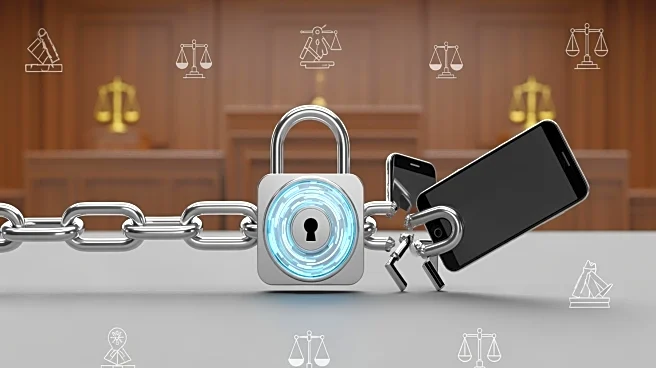What's Happening?
A U.S. District Judge, Phyllis Hamilton, has issued an injunction against the Israeli spyware maker NSO Group, preventing it from targeting WhatsApp users. The decision comes after a lengthy legal battle
initiated by WhatsApp's parent company, Meta, in 2019. The lawsuit accused NSO Group of cyberespionage, targeting journalists, lawyers, and human rights activists using WhatsApp's encrypted messaging service. The court found that NSO Group reverse-engineered WhatsApp's code to install spyware, which was repeatedly redesigned to evade detection and bypass security measures. Although the judge acknowledged the ongoing harm caused by NSO Group's actions, she reduced the damages awarded to Meta from $168 million to $4 million, citing a lack of precedent for such cases in the smartphone era.
Why It's Important?
This ruling is significant as it underscores the legal challenges and implications surrounding cybersecurity and privacy in the digital age. The decision to bar NSO Group from targeting WhatsApp users highlights the judiciary's role in protecting civil society members from unauthorized surveillance. The reduction in damages reflects the complexities of quantifying harm in cases of electronic surveillance. This case sets a precedent for future litigation involving unlawful electronic surveillance, potentially influencing how courts assess damages and enforce privacy protections. The ruling also serves as a warning to companies engaged in similar activities, emphasizing the importance of adhering to legal standards in cybersecurity practices.
What's Next?
Following the court's decision, Meta and WhatsApp may continue to enhance their security measures to prevent future breaches. The ruling could prompt other tech companies to review their cybersecurity protocols and legal strategies to protect user privacy. NSO Group may face increased scrutiny and potential legal challenges from other entities affected by its spyware. The case may also influence legislative discussions on privacy and cybersecurity, potentially leading to stricter regulations and enforcement mechanisms. Stakeholders in the tech industry, including privacy advocates and legal experts, are likely to monitor the implications of this ruling closely.
Beyond the Headlines
The ethical dimensions of this case highlight the ongoing debate over surveillance technology and its impact on privacy rights. The ruling raises questions about the balance between national security interests and individual privacy, particularly in the context of digital communication platforms. It also underscores the need for international cooperation in addressing cybersecurity threats and establishing global standards for privacy protection. The case may contribute to broader discussions on the ethical use of technology and the responsibilities of companies in safeguarding user data.










